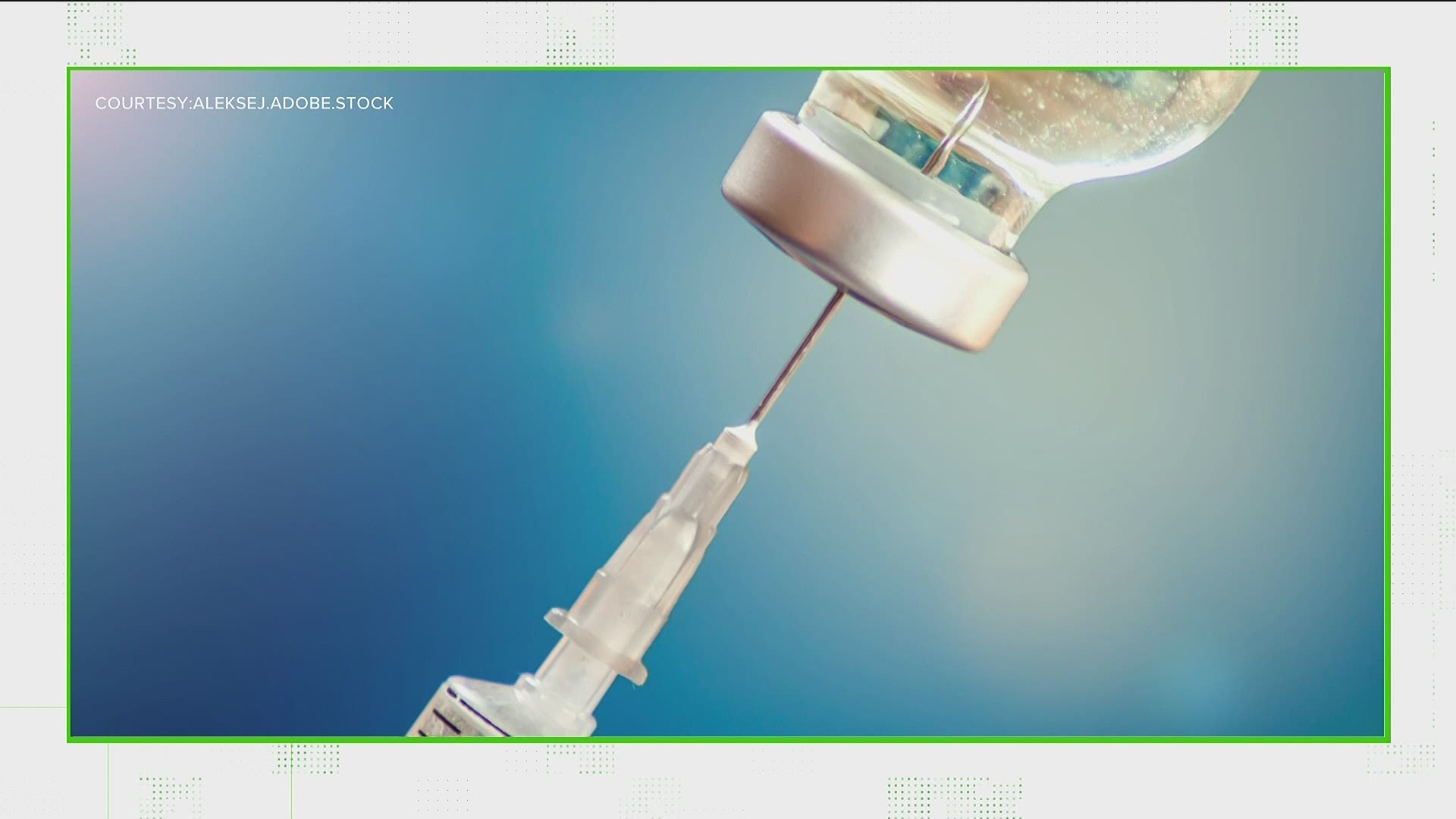As drug companies continue to study the effectiveness of COVID-19 vaccines, 11Alive's Verify team continues to address your questions.
Russ reached out to the team via email, asking about the clinical trial and approval process for potential COVID-19 vaccine booster shots.
THE QUESTION
Can COVID-19 vaccine booster shots be approved after Phase 1 testing? Or do the vaccines need to go through additional testing before the FDA can consider emergency use authorization?
THE ANSWER
The U.S. Food and Drug Administration has not released specifics but in a February media briefing, officials indicated clinical data with a few hundred individuals is likely over a span of a couple months. As a result, evaluating the immunogenicity of booster shots is expected to be much faster than the initial Phase 3 trials.
WHAT WE FOUND
It's important to note the FDA has not determined we will need booster shots, but we do know drug companies, like Pfizer and Moderna, are already testing such vaccines. Such approaches could mean an additional dose of the same vaccine or a modified version.
"At this time, available information suggests that the FDA-authorized vaccines remain effective in protecting the American public against currently circulating strains of SARS-CoV-2," an FDA spokesperson confirmed to 11Alive. "However, if there is an emergence of SARS-CoV-2 variant(s) in the U.S. that are moderately or fully resistant to the antibody response elicited by the current generation of COVID-19 vaccines, it may be necessary to tailor the vaccines to the variant(s)."
In fact, the FDA updated its guidance for vaccine manufacturers in February, outlining the agency's recommendations for modifications to authorized vaccines.
"The FDA expects that manufacturing information will remain generally the same for an authorized vaccine and a modified vaccine candidate from the same manufacturer," a spokesperson said. Such guidance details the agency recommendations that a booster shot's effectiveness be supported by data from clinical immunogenicity studies, comparing immune response as well as evaluating safety.
But what should the size and scale of such studies be? Dr. Peter Marks, Director of the Center for Biologics Evaluation and Research (CBER) at the Food and Drug Administration, addressed such questions in the February briefing.
"So we can't give you an exact number but it's going to be on the level of 200 individuals, in terms of size," Dr. Marks said. "And we'd expect that that might take a few months, whether it be two or three can't say exactly how long but again on that type of a scale with the amount of time."
Dr. Grace Gowda, Director, International Biomedical Regulatory Sciences Program at University of Georgia's College of Pharmacy, explained the process further.
"I don't want to put us in Phase 1, Phase 2, Phase 3 paradigm," Dr. Gowda said of the clinical trial process for booster shots. "[The FDA is] not going to give a new emergency use authorization. They're going to amend the current emergency use authorization. The advisory committee will look at the data and look at the vaccine proposed, whether it's modified or just the same vaccine third dose, and they will make a decision."
In summary, the FDA has not released specifics on size or timing for booster shot trials, but with our sources, we can verify clinical trial data is required and will study how well a booster shot works, plus safety.
As of now, these trials are expected to be much faster, with a few hundred participants versus the tens of thousands studied in the initial Phase 3 trials.

